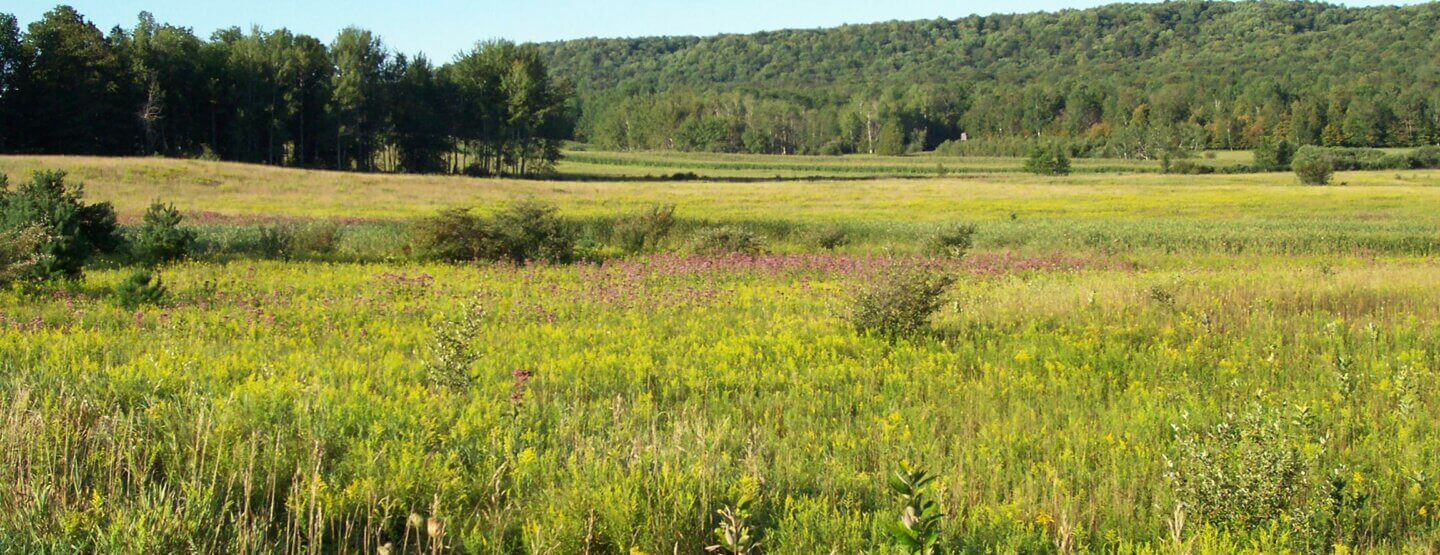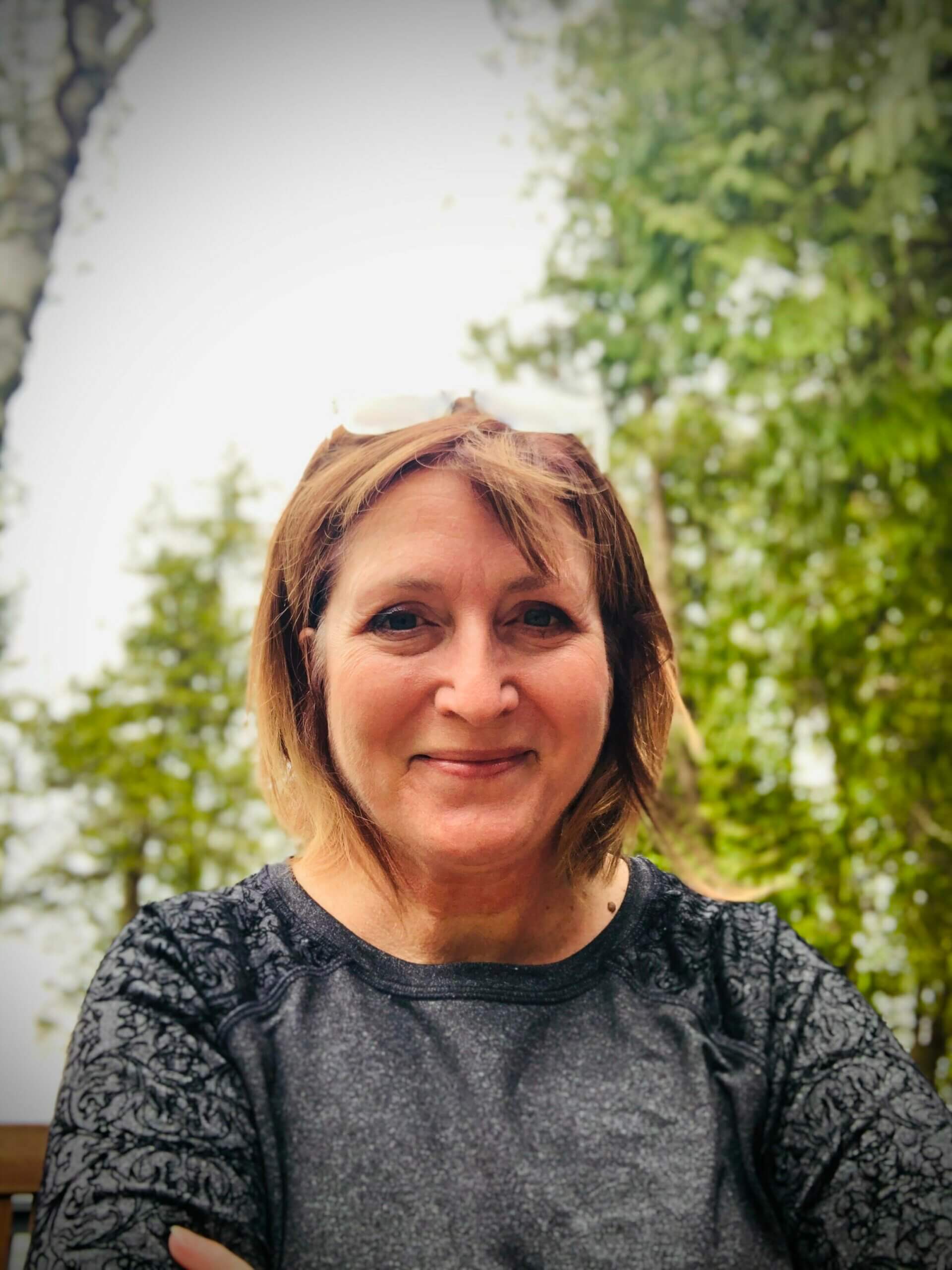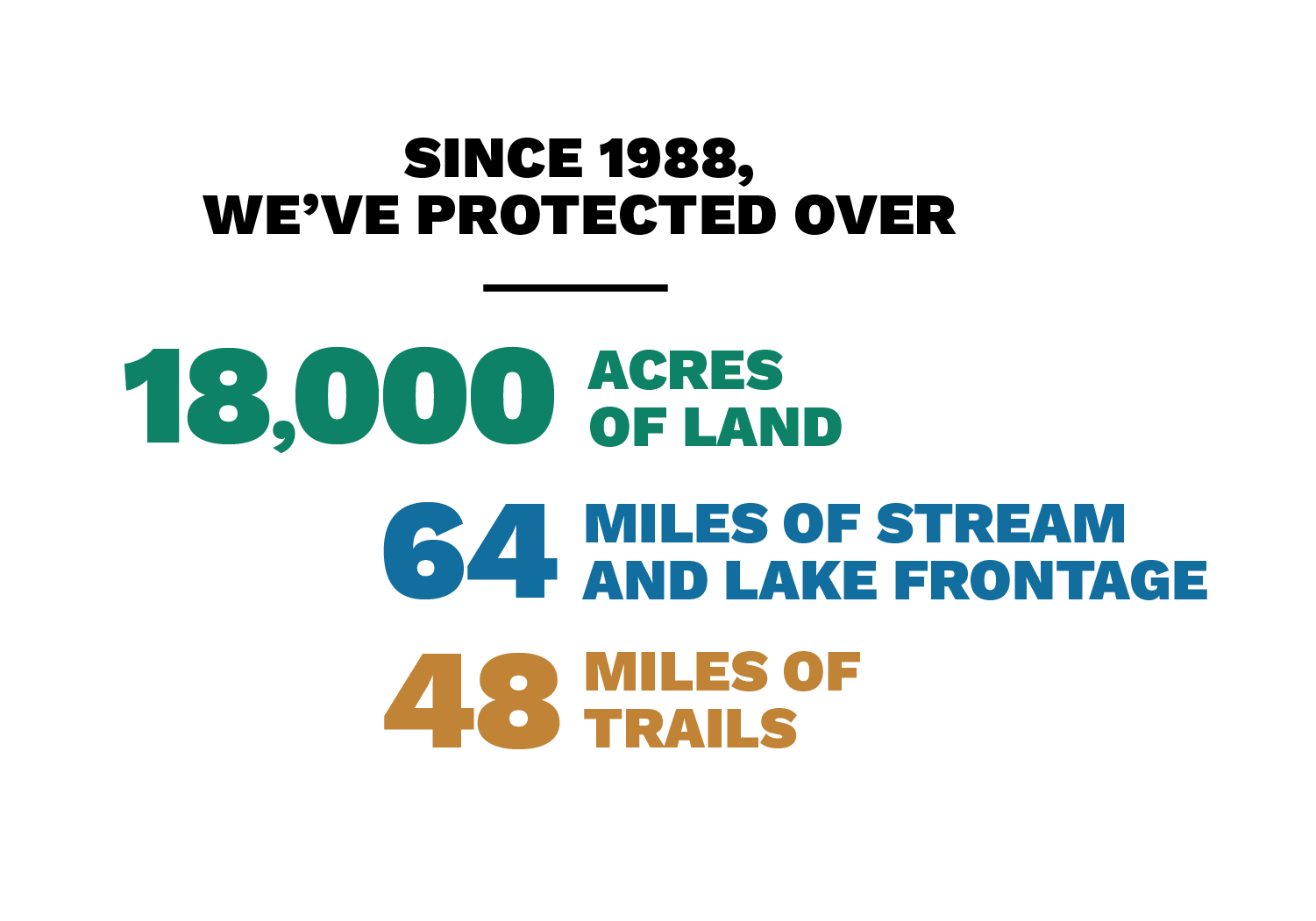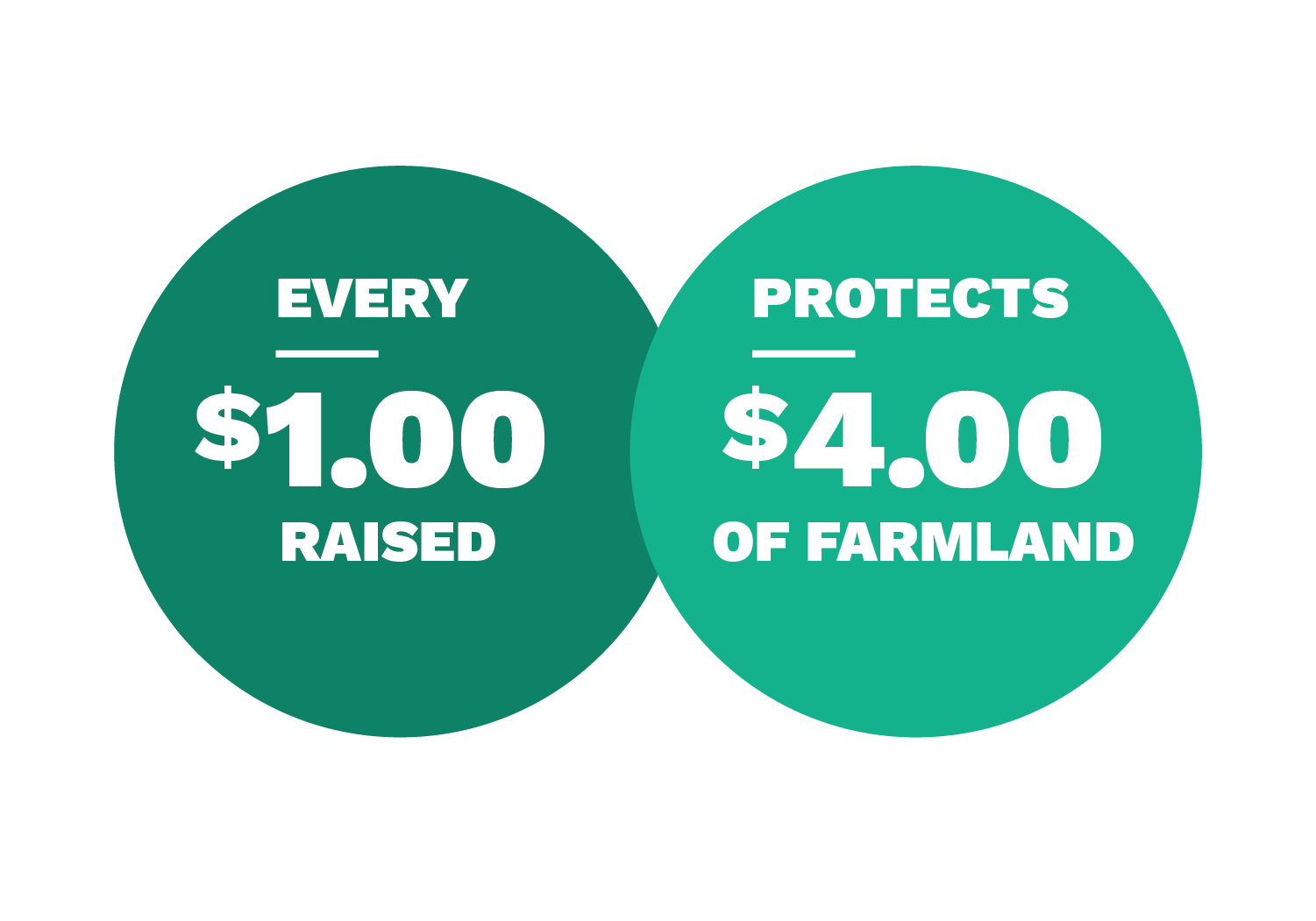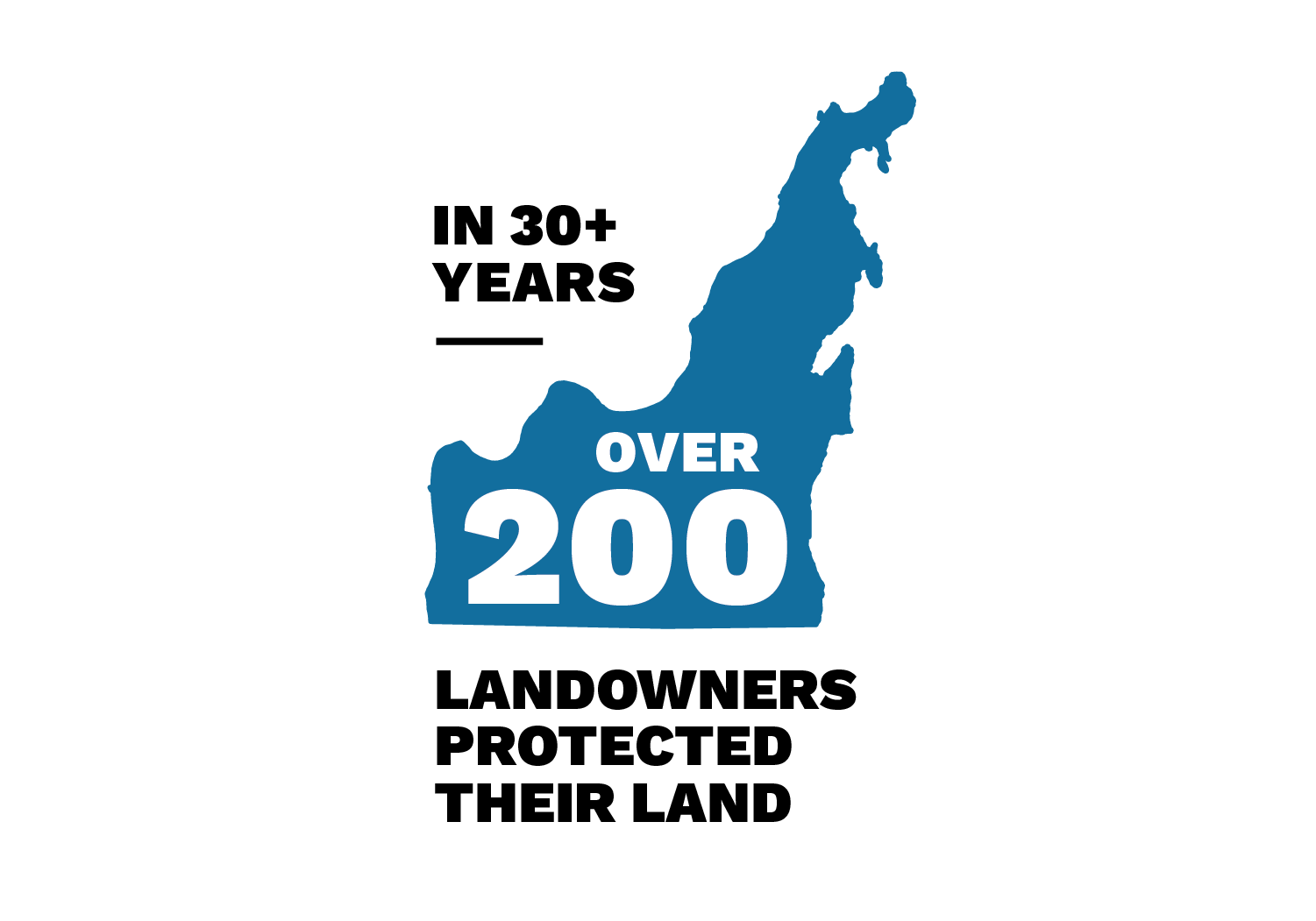Eight years ago, Executive Director Tom Nelson sat down at a picnic table with me and my husband Brian to talk about the different ways Leelanau Conservancy could assist in our estate planning and in that plan address our desire to have our farm remain farmland for as long as possible.
Eight years prior to that meeting, Brian and I started New Mission Organics on an organic cherry plot in Omena. The parcel was part of a 100-acre site that had recently been rezoned as residential and was planned for development. We purchased 30 acres and reverted the zoning back to agricultural. The cherries are long gone due to climate change incompatibility. Today, doing business as the Hop Alliance, we grow 17 varieties of hops, supplying Michigan breweries with hop cones and pellets that reflect our unique Leelanau terroir.
By Leelanau standards, we were just infants in the farming industry, but like many others we were drawn to live and farm here because of the importance of agriculture to our county and the physical beauty and calming nature of Leelanau County viewsheds. Leelanau’s character is inextricably intertwined with the strength and integrity of its family farms.
Farming in Leelanau is deeply connected to what we love most about our peninsula: diverse, fresh seasonal produce, breathtaking scenic vistas, uninterrupted habitat corridors for native wildlife, a robust local economy, and a tightknit community of people who care for one another.
Most of Leelanau’s farms are owned and managed by people who live and work here, not big business. Farm families are stewards of the land. They have a strong interest in protecting Leelanau’s land, water, and scenic character, which adds to everyone’s quality of life.
Tom taught us that the Leelanau Conservancy’s farmland protection program promotes and supports farming in Leelanau County. It permanently preserves farmland from being converted to non-agricultural uses while providing much-needed capital to farmers, instead of selling or mortgaging their land. Farmers are paid up to 75% of the land’s development value when they create an agricultural conservation easement with the Leelanau Conservancy. Landowners use these funds as they need and often reinvest in the farm, such as upgrading equipment, renovating infrastructure, or by collaborating with invaluable local resources like MSU Extension and the USDA, learning how to diversify crops and mitigate the effects of climate change, further strengthening the viability of their farm.
Protecting farms protects natural land. Many people may not realize that Leelanau farmers also own and care for an enormous percentage of our natural landscapes. In Leelanau, it is not unusual for half of a farmer’s land to be covered in natural features like forests, wetlands, and streams.
The agricultural conservation easements used to permanently protect farmland typically include terms that also permanently protect natural features commonly found on Leelanau farms. Leelanau farmland’s proximity to natural lands also means farms can act as buffers between human development and natural habitats that benefit from being less exposed to human interference. Agricultural conservation easements ensure these natural land buffers remain intact. Development that is not targeted towards increasing access to affordable housing for people who work at the farms and other businesses in our county is a threat to Leelanau farm country. The conversion of Leelanau’s farmland to non-agricultural uses is persistent and growing. The long-term impact can be irreversible.
Fragmentation of productive farmland by residential and commercial development has a cascading effect that decreases neighboring farms’ viability. Farming is a community effort. Fewer farms lead to fewer nearby processing facilities and fewer opportunities to share resources like equipment and labor. This increases the cost to farmers and decreases the chances farms can remain viable. The weakening of Leelanau’s agricultural economy would have devastating impacts on local jobs, agritourism, and access to fresh, local food. Farmers are under increased pressure to sell their land. In recent years, people’s interest in living in rural places like Leelanau has significantly increased. This has led to higher land values and increased the incentive for farmers to sell their high-quality farmland to non-agricultural developers. The Leelanau Conservancy needs your continued support to provide a viable alternative to local farmers so we can help ensure Leelanau’s robust farming culture can weather these tumultuous times.
-Amy Tennis, Board President

